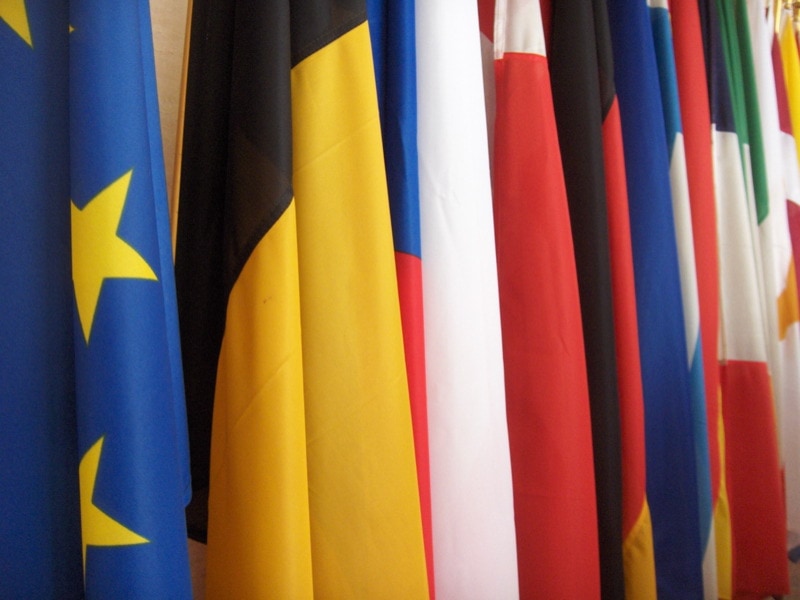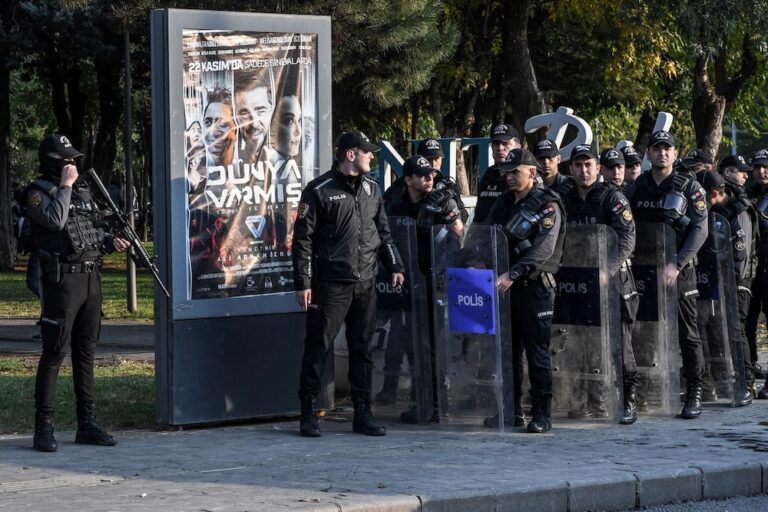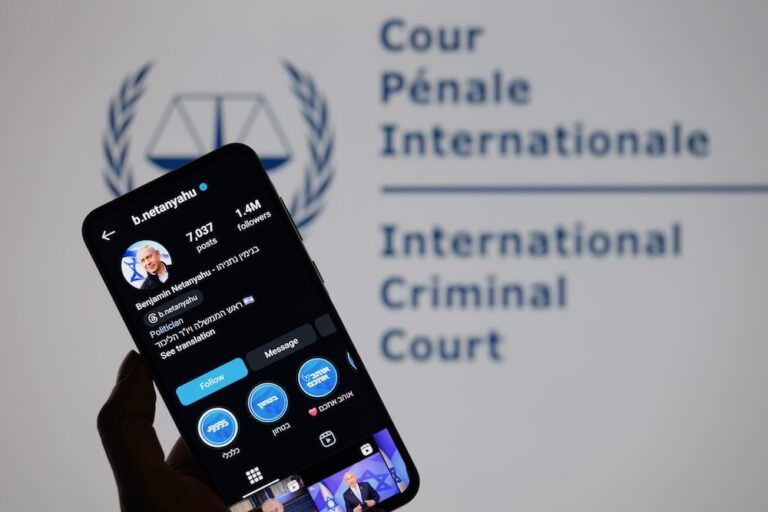As the European Commission opens a consultation on its planned freedom of expression guidelines, Index on Censorship sets out what it sees as the key principles that must underpin such guidelines.
As the European Commission opens a consultation on its planned freedom of expression guidelines, Index on Censorship is publishing a public note setting out what it sees as the key principles that must underpin such guidelines.
The EU plans to use these guidelines to assess, in its varied relationships with other countries, if freedom of expression is being respected online and off. While the EU has considerable experience in setting standards for freedom of expression offline, it has been less clear until now how it plans to defend free speech online. We hope these guidelines and other initiatives set out in the EU Action Plan on Human Rights and Democracy represent effective steps in the right direction.
These guidelines are a crucial opportunity for the EU to encourage free expression. It is vital that different groups from across civil society input and argue for a full clear defence of free speech online and off.
How the European Union can protect freedom of expression (PDF)
The European Union and its member states have always been committed in theory at least to democratic principles and fundamental human rights. The EU aims to promote human rights both internally and externally, using EU influence in its external policies to push for greater human rights compliance, notably in its enlargement processes, and to a varying degree in other areas (such as neighbourhood policy (to some extent), trade policy (little) and aid policy (to some extent). All member states are signatories to the EU, the European Convention on Human Rights and the Universal Declaration of Human Rights, which protect freedom of expression; the EU’s own Charter of Fundamental Rights is now part of the EU’s Lisbon Treaty. However, the range of cases at the European Court of Human Rights in Strasbourg tells us that the EU member states need to look at their own rights performance as well as to push for human rights internationally.
The EU Action Plan on Human Rights and Democracy published in June 2012 calls for the EU to develop new public guidelines on freedom of expression online and off. This paper outlines key global issues and principles on free expression that Index believes the EU should consider as essential when it drafts these guidelines.
(1) Protecting freedom of expression in a digital age [1]
There are a number of key issues the EU must consider to ensure the protection and promotion of digital freedom of expression in its foreign policies.
1.1 Internet governance
Establishing a global body exercising top-down control of the internet would risk increased suppression of speech, severely erode openness and inhibit innovation and creativity. Index believes the European Union should defend a bottom-up, multi-stakeholder approach to internet governance to ensure an open and free internet is defended, and we welcome recent calls in the European Parliament for the Union to defend this freedom.
1.2 State censorship
Authoritarian states continue to be active in online censorship, from China’s Great Firewall to Iran’s plans for a “halal internet”. States should not institute network-wide filters or firewalls that create national intranets. The excessive and inappropriate use of takedown requests by governments can also have a negative impact on online debate, on social media, comment threads and beyond. Index believes that, in parallel with free speech offline, any limits made on online speech must be necessary, limited, transparent and proportionate, and takedown requests should always be backed with a court order.
1.3 Corporate censorship
Private companies face the challenge of expanding internationally while obeying national laws and respecting fundamental human rights. Meanwhile, companies such as Facebook, Twitter and Google are playing a greater role in delineating the boundaries of ‘acceptable’ speech through their own terms of service. National-level libel and privacy laws often make internet intermediaries, who are not the authors or publishers of content, judge and jury over censoring content. Index believes intermediaries should not be liable for content they have not authored. In addition, national laws must not disproportionately impact upon freedom of expression, and private companies should fully respect their human rights obligations in their operations around the world.
1.4 Criminalising online speech
Increased capability to share content online means that messages some groups might find offensive can spread quickly to large audiences. Online speech deemed “offensive” is increasingly being criminalised, especially on social media platforms. This trend must be reversed. Efforts to restrict speech based on perceived offense must be narrow and limited, as outlined in the UDHR. Public prosecutors should not criminalise content based solely on real or perceived offense.
1.5 Net neutrality
Net neutrality – the principle that all data should be treated equally on networks – is an essential prerequisite for a free and open internet. Net neutrality should be written into statute. The European Parliament’s Draft Report on a Digital Freedom Strategy in EU Foreign Policy called on both the Commission and Council to codify the principle of net neutrality in appropriate regulation, “so as to strengthen its credibility in terms of promoting and defending digital freedoms around the world.” Index echoes this call.
1.6 Surveillance and privacy
Mass monitoring, surveillance and the unnecessary storage (with state access) of citizens’ use of digital communications are unacceptable breaches of fundamental human rights. The right to privacy and freedom of expression are closely linked: if individuals’ communications are monitored, that will directly chill their free expression and encourage self-censorship. Governments should not store unnecessary amounts of their citizens’ communications data. Government access to data should be limited in scope with as few bodies able to access the data as strictly necessary; transparent, subject to judicial oversight and legally defined.
A related threat is the role western technology companies are playing in producing and exporting surveillance equipment that allows governments to retain data and spy on citizens. Index welcomes the European Parliament’s recent endorsement of stricter European export controls of such “digital arms”, as proposed by Marietje Schaake, and urges the EU to follow this lead.
1.7 Copyright
Attempts to enforce traditional copyright models in the digital world risk criminalising and censoring individual users. Copyright laws should not be used to block individuals’ access to the internet. There is a need for an open debate that looks at new business models that work for both creators and users.
1.8 Access to free expression online
The latest statistics suggest 63 per cent of Europe’s population is online. As the digital world becomes an increasingly key part of social, economic and political life, access to digital communications is fundamental. The digital divide needs to be further overcome in the EU and around the world. Online censorship should not close down these spaces, and nor should other obstacles to free expression online be allowed to persist, including illiteracy, marginalisation and poverty, or discrimination by gender or by ethnicity.
1.9 Support for human rights defenders and citizen journalists
The technological innovations that have transformed the work of activists have also facilitated attacks on bloggers who push back against established networks of control. Index contends that online and citizen journalists must be given the same protection as mainstream and offline media organisations.
(2) Protecting free expression offline
2.1 Media freedom
In any democracy, citizens must be free to challenge authority. Restrictive legislation, over-regulation and a lack of plurality diminishes the media’s ability to act as a public watchdog holding power to account. Media freedom in recent years has been restricted by anti-terrorism laws, classified government documents, secrecy laws and corporate bullying of the media. Restrictions on laws that govern the press must be transparent, limited and proportionate; anti-terrorism legislation must not reduce the fundamental principle of confidentially of sources, which makes investigative journalism possible; state secrecy laws should contain a public interest defence; and commercial privacy should be limited when corporate malfeasance needs exposing in the public interest.
2.2 Media regulation
Statutory regulation of print media is inappropriate bringing politicians too close to interference in newspapers’ editorial freedom. Independent or self-regulatory regulatory bodies are the appropriate routed alongside high media standards and ethics. Where there is limited media capacity (such as terrestrial television and radio), state licensing can be justified as long as it is not used to silence critical voices. States should encourage media plurality and not limit competition but intervene to prevent media monopolies.
2.3 Libel
Archaic libel laws chill freedom of expression in too many countries around the world. The most significant chill comes from the use of criminal defamation to imprison those who criticise government officials or politicians. The use of criminal defamation laws is unjust and disproportionate, and countries should decriminalise libel in line with the recommendations of the UN special rapporteur on freedom of expression.
Civil defamation laws can also chill freedom of expression. Civil defamation laws must not give rise to excessive costs or damages and have adequate defences to protect the public interest, truth and fair comment.
2.4 Balancing privacy and freedom of expression
Freedom of expression and privacy are often complementary as human rights. Free speech can be chilled if individuals fear speaking out on controversial issues because they are being watched or listened too. Privacy and anonymity are important in protecting free expression in many circumstances. At the same time, the right to privacy and the right to free expression can sometimes come into conflict: investigative journalism exposing corruption, wrong-doing, abuse of power etc, must have accessible public interest defences that allows in such circumstances some invasion of privacy that would otherwise be deemed inappropriate.
2.5 Hate speech, offence and religious freedom
Hate speech and incitement to violence are increasingly confused with offence and blasphemy. There should be a very high threshold for prosecuting hate speech. Open debate can be an effective response to intolerance.
Blasphemy laws should be repealed, in particular criminal blasphemy laws that have a significant impact on religious minorities. With the expansion of the internet, content that some religious believers find blasphemous is increasingly available. Blasphemous or offensive content is neither an incitement to violence nor a reason to respond with violence. Demands to censor offensive material also present major challenges to online hosts of user-generated content, such as YouTube, Facebook and others. Offensive speech is a subjective concept – one person’s interesting idea is another’s offensive comment – and there is no right not to be offended. Moderated sites can create their own rules as to acceptable content – just as clubs or newspapers or broadcasters do, as editorial choices – but free speech means tolerating views you do not like or find offensive.
2.6 Freedom of information
Freedom of information law is an essential component of the right to freedom of expression. Countries should have freedom of information laws that prevent the over-classification of information, reduce secrecy, have a right to appeal where governments refuse information and are low-cost for citizens to use.
2.7 Freedom of assembly
Increasingly governments have introduced fines to prevent legitimate protest without licenses or permits (that are often refused). It has become a method to reduce visible, public freedom of expression. Freedom of assembly is a human right that should only be restricted in very limited circumstances for instance the protection of other human rights.
[1] A fuller version on protecting online freedom of expression can be found in the note, Standing up to threats to digital freedom
Please let us know what you think are the greatest global challenges to free speech — and let the EU know too — by leaving a comment on Index on Censorship’s website.



